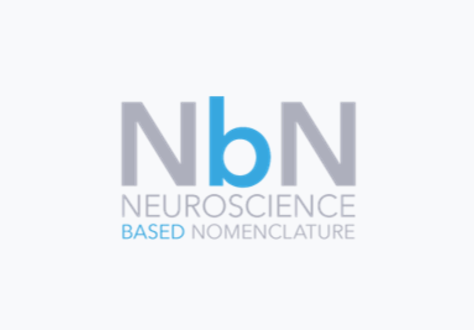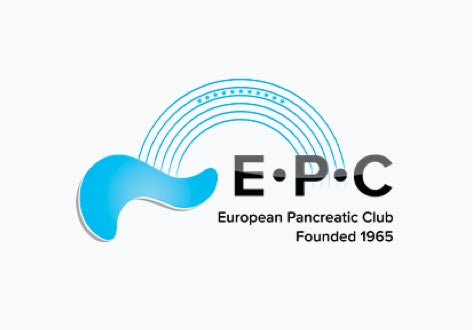
A:CARE CONGRESS
OCTOBER 2024
A:CARE CONGRESS
OCTOBER 2024
Adherence is a behavior. Do we have the right one?
In 2024 for the 3rd edition, the a:care congress is taking a step further, by delving deeper into the complexity of the human behaviors that drive non-adherence to treatment and solutions that come with new technologies that revolutionize our day-to-day activities.

Welcome and Introduction
Nearly half the people don’t take their medicines as prescribed, and one-third never fill their prescriptions. Globally as well as in India, this is a massive medical challenge that keep people from living their healthiest lives1 ,and this only worsens clinical outcomes but also increases morbidity, premature mortality rates, and healthcare expenditures. In 2024, the a:care congress delves deeper into the complexity if human behaviors that drive non-adherence to treatment and solutions that come with new technologies.
Dr. Milind Nadkar (India)
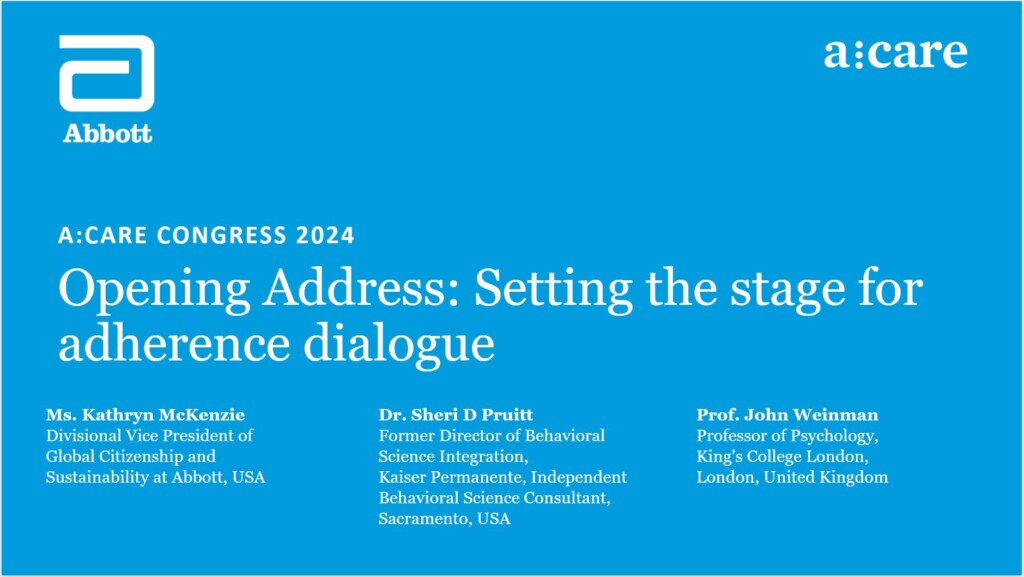
Opening address: Setting the stage for adherence dialogue
Dr. Sheri D. Pruitt, the chair of the event, Prof. John Weinman, the honorary chair, as well as Kathryn McKenzie from Abbott, welcome you to the 3rd edition of the a:care Congress.
Dr. Sheri Pruitt, Prof. John Weinman, Ms. Kathryn McKenzie
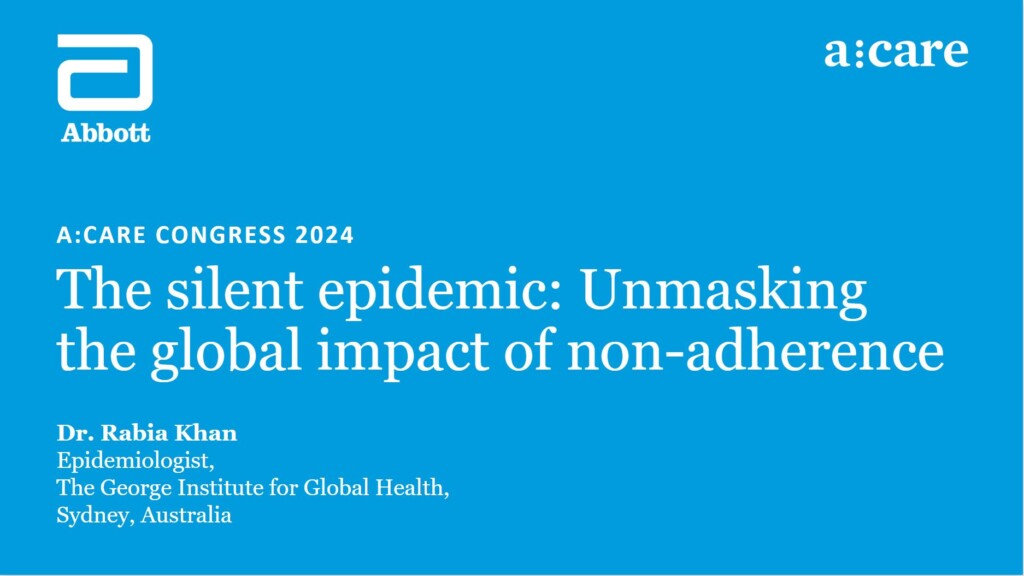
The silent epidemic: Unmasking the global impact of non-adherence
Non-adherence to medication is a globally underestimated and overlook issue, affecting millions of lives and reaching approximately 50% for long-term treatments1. Strengthening the trust relationship between healthcare professionals and patients is crucial to addressing the challenge of medication adherence.
Ms. Rabia Khan
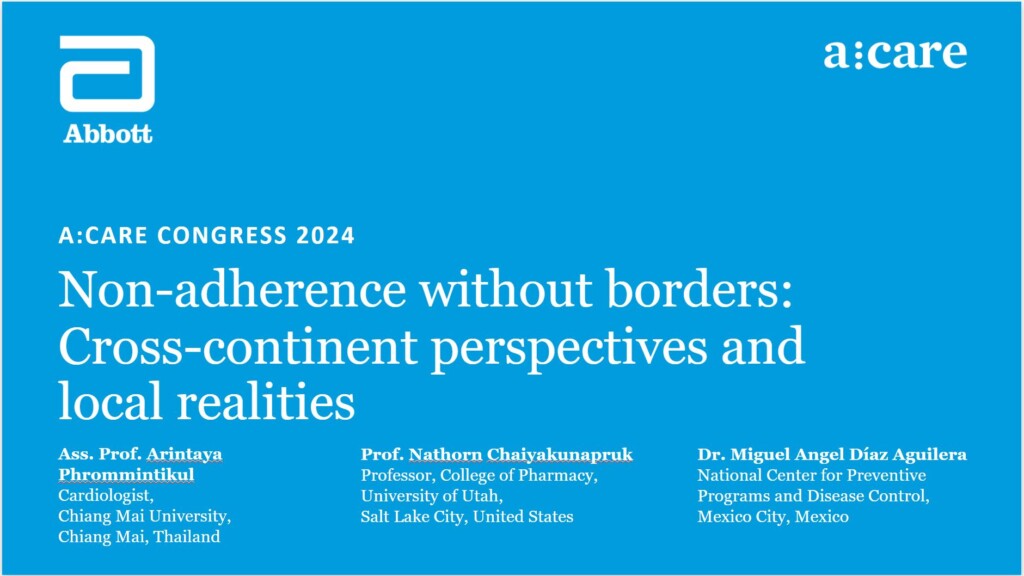
Non-adherence without borders: Cross continent perspectives and local realities
Non-adherence is a global issue, but local realities vary depending on patients, healthcare providers, healthcare systems as well as socio-economics factors2. A deeper understanding of the clinical environment, health economics, and the benefits of improving adherence, along with global and local policies, can provide new insights into the challenges of adherence and potential solutions at various levels of the healthcare system.
Prof. Nathorn Chaiyakunapruk, Dr. Miguel Angel Díaz Aguilera, Prof. Arintaya Phrommintikul
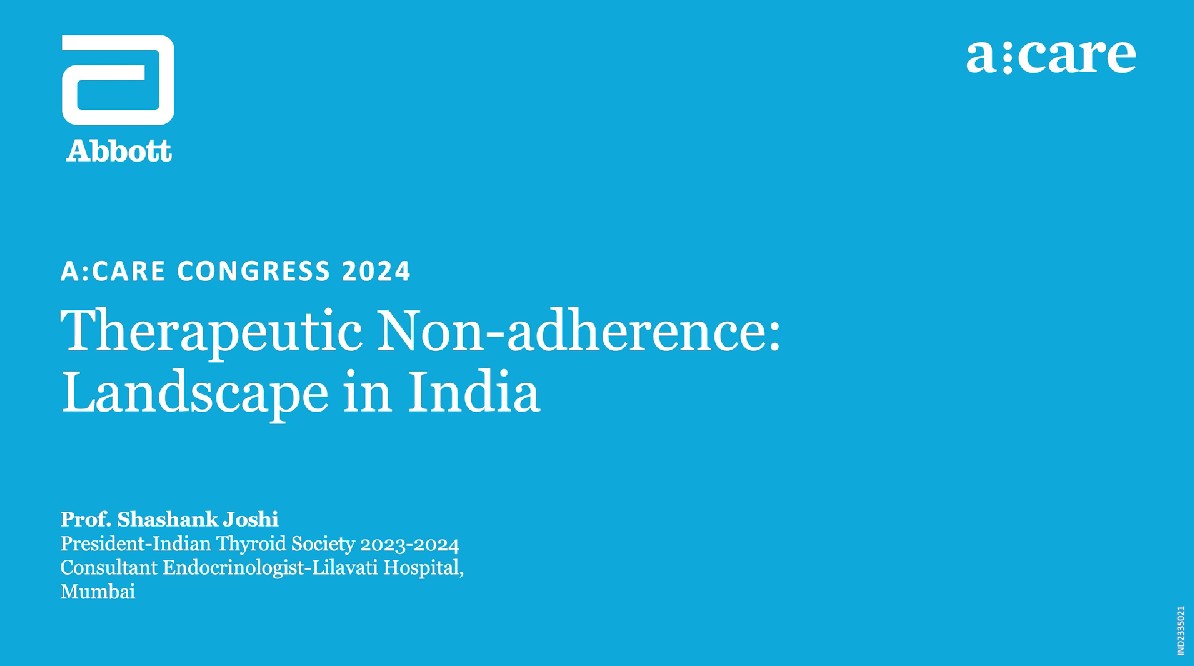
Importance of Adherence: An Indian Scenario
In India, medication adherence is a significant challenge, with nearly 48.62% of patients with co-morbid conditions being non-adherent1. The World Health Organization (WHO) highlights that medication adherence can have a more direct impact on patient outcomes than the specific treatment itself2. To tackle this issue effectively, a patient-centered approach is crucial, involving all stakeholders in the healthcare system. This includes patients, policymakers, healthcare organizations and professionals, payers, educators, professional regulatory bodies, industry, and the research community.
Prof. Shashank Joshi (India)
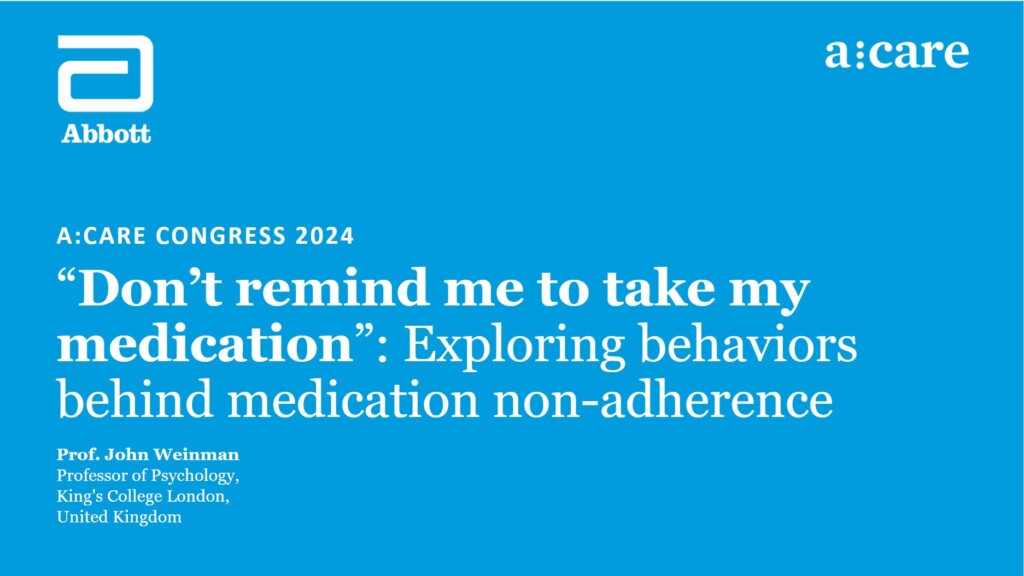
“Don’t remind me to take my medication”: Exploring behaviors behind medication non-adherence
While patient forgetfulness is often cited as the main reason for non-adherence, behavioral sciences enable us to explore the deeper complexities of human behavior and uncover the real barriers to adherence. Recognizing adherence as a behavior and identifying its true underlying reasons3 are essential first steps to effectively manage it through targeted behavioral change approaches.
Prof. John Weinman
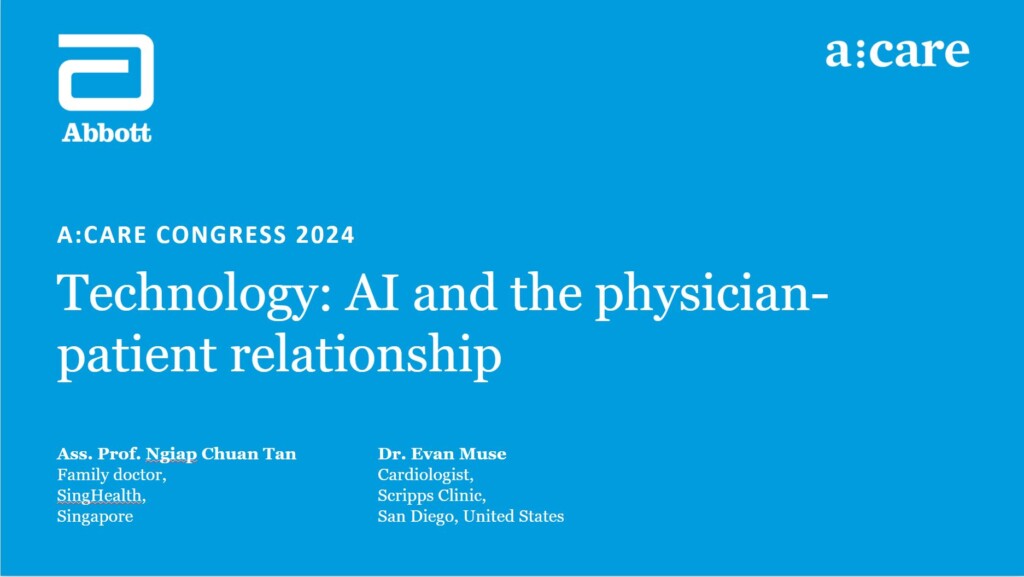
Technology: AI, And the physician-patient relationship
The world is evolving rapidly, and technological innovations are no exception. While the potential of digital health and AI seems limitless – offering new possibilities for supporting patients, healthcare professionals, and data generation – their impact on the physician-patient relationship raises important questions from both perspectives.
Prof. Ngiap Chuan Tan, Dr. Evan Muse
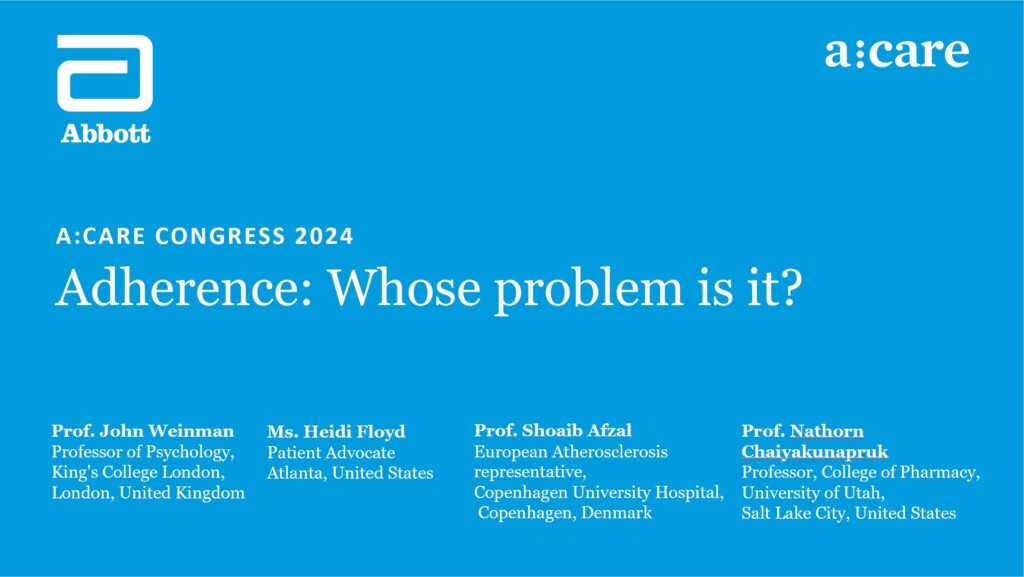
Adherence: Whose Problem Is It?
All stakeholders in the healthcare system, including healthcare professionals, health economists, medical societies, and patients, have a role to play in improving adherence. Discussing the roles at each level, clarifying communication pathways, and identifying both current and future solutions have become essential to converge efforts around key pillars for better adherence.
Prof. John Weinman, Ms. Heidi Floyd, Prof. Shoaib Afzal, Prof. Nathorn Chaiyakunapruk
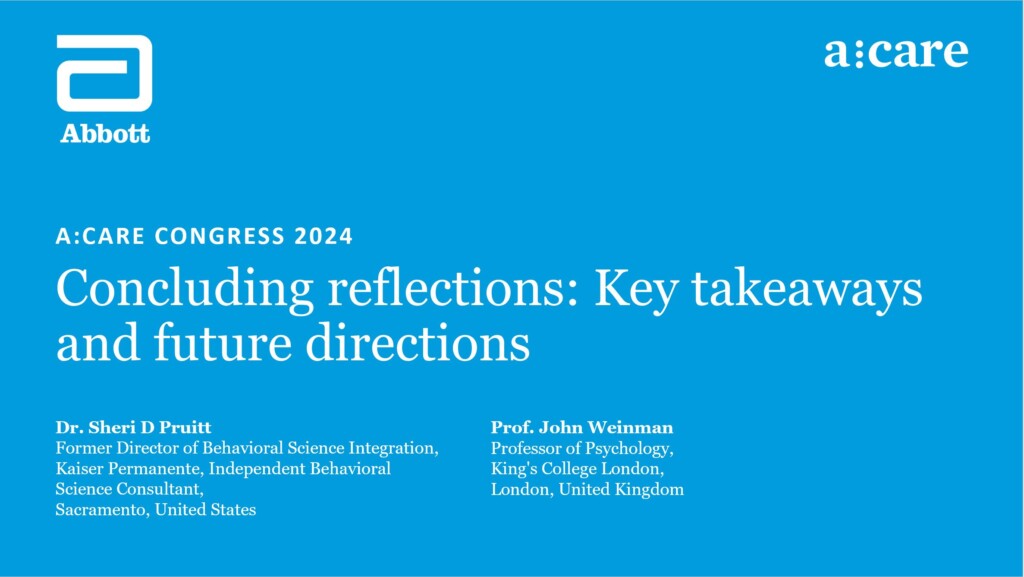
Concluding reflections: Key takeaways and future directions
Closing of the congress and key takeaways messages.
Dr. Sheri D. Pruitt, Prof. John Weinman
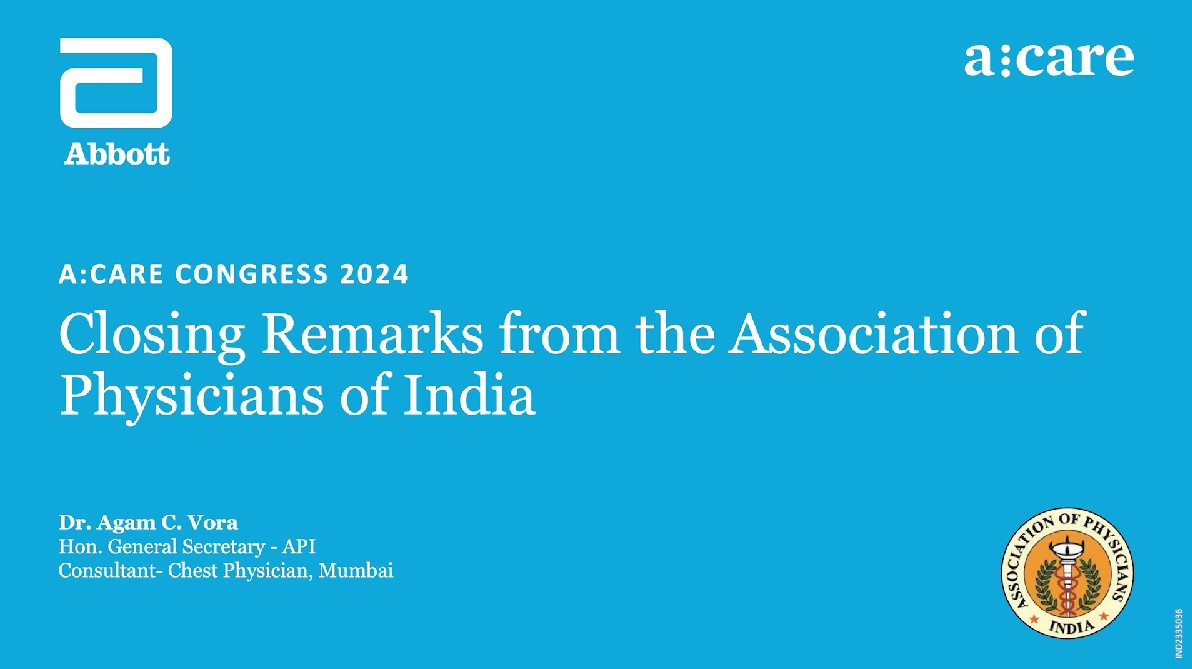
Summary and Vote of Thanks
There is a need to foster collaborative environment where all the stakeholders in the healthcare system have a role to play, including healthcare professionals, patients, scientists, and health economics experts. Together let us embrace innovative solutions and re-define healthcare standards.
Dr. Agam Vora (India)
Endorsed by:





